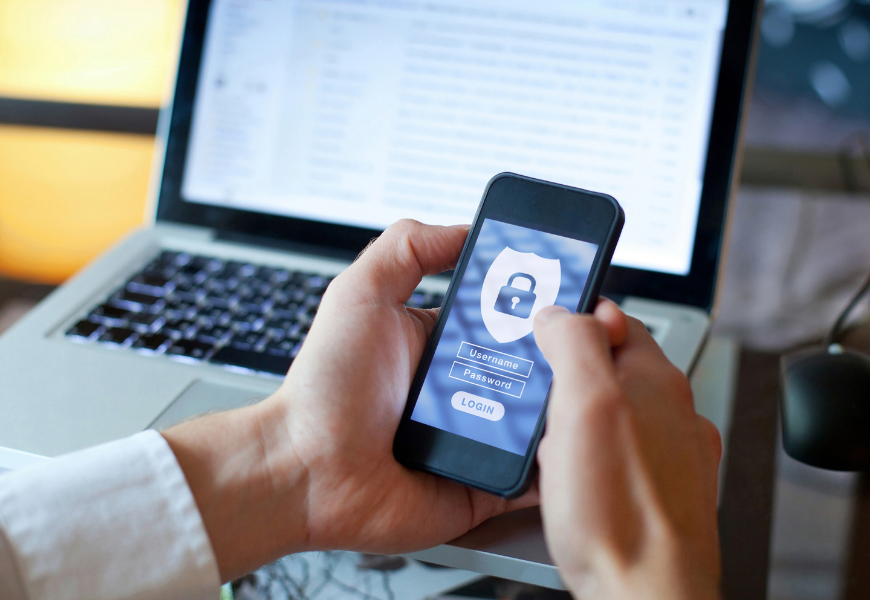Make privacy a priority this week – and every week
Did you know half of us here in Australia don’t know how to protect our personal information?
The sensitive stuff like our contact details, financial information and health records.
And while most of us – 85 per cent – know why we should protect it, a lack of time, knowledge or thinking it’s too hard mean many of us have buried our heads in the proverbial sand.
That’s why, for Privacy Awareness Week in 2021, we’re all being asked to ‘make privacy a priority’.
Privacy Awareness Week
Privacy Awareness Week is an annual event, celebrated throughout the Asia Pacific region, where organisations, individuals and governments come together to raise awareness of the importance of privacy. This year, Privacy Awareness Week runs from 3 to 9 May.
nbn is proud to support Privacy Awareness Week, which is facilitated by the Office of the Australian Information Commissioner.
This year’s theme – Make privacy a priority – is a great reminder of how important it is for privacy to be an integral component in systems and processes, and not the checkbox or afterthought some people think it is.
That’s private!
You wouldn’t stand on a street corner and yell out your credit card number or home address, so why do it online?
It’s important we all know how to protect our personal information, so here are some handy tips to help protect your privacy:
- Protect your personal information by using the best cyber security tools that are available to you
Use multi-factor authentication and strong passphrases, keep your security software up to date, and use a pinlock on your devices — all of these actions will help to protect your digital identity. - Think before you share online
Before you post personal information online, think about who can see it and what might happen to that information. It’s important to adjust what information you share online depending on how public the forum is, and how much you trust the people who can see what you post. - If your data is breached, act quickly
If you think you see suspicious activity on your social media accounts, banks accounts or anywhere else, take action quickly — change your passwords and notify any relevant organisations. - Check before sharing your personal information
Always ask why an organisation is collecting your personal information — don’t give out your information unless you’re comfortable with how it will be used, shared and protected. - Update your privacy settings
You can control a lot of information collected about you by checking and adjusting the ‘Cookies’ settings on your browser, the location data and other information on apps, and the privacy settings on your social media. - Talk about privacy with your friends and family
Help the people in your life protect their own privacy by talking to them about how they share personal information online and what steps they take to protect themselves. This will help them make privacy-conscious decisions when they need to.

Prioritising privacy at nbn
At nbn, we make privacy a priority every day because we understand how essential it is to help meet the needs and expectations of our customers as we strive to be Australia’s most trusted and secure network.
And one of the many ways we prioritise privacy is by acknowledging its role in security.
As Chief Security Officer at nbn, I look after the Security Group, which is responsible for everything from cyber threat assessments to incident response, and physical security of our assets and people through to privacy.
And the reason that all of these areas sit together is that every one of them is an essential aspect of security — securing our network, our people, our customers, and our data.
We need each of these areas – of which privacy is a key component – to support each other, because none of them can do it alone.
For an organisation that uses a lot of data, prioritising privacy is absolutely essential to everything we do, every day.
Privacy is about knowing what information we collect and why we are collecting it. It’s about knowing that we’re only collecting what we need and that we always use our information exactly as we said we would. Privacy is about protecting the information we hold.
The same combination exists in all of our personal lives.
Using the cyber security tools that are available to you, like multi-factor authentication or secure passphrases, will help secure your digital identity.
At the same time, prioritising your own privacy – like not oversharing personal information in a public online setting – can help protect you from phishing and social engineering attacks.
The Ponemon Institute, which focuses on privacy, data protection and information security policy, has found that 57 per cent of people who have experienced a phishing attack have NOT changed their password management habits.
And the United Kingdom’s National Cyber Security Centre reports that the password ‘123456’ has been associated with an incredible 23 million breached accounts.
These, and so many more, are all reasons to think about privacy and cyber security as a team that support each other.
Privacy Awareness Week is a great time to think about our habits and how we can make changes to help protect our personal information, our digital identity and ourselves – not just in the first week of May, but every week and throughout the year.
So, what will you do to protect your valuable personal information?



